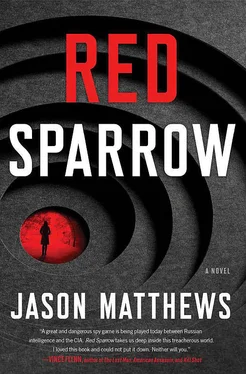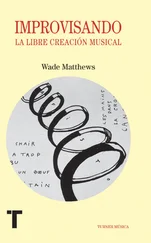But what y’all suppose we do about young Nate? they had asked one another. Graduated from Johns Hopkins with a degree in Russian literature, Nate sought refuge in the spiritual, ascetic world of Gogol, Chekhov, Turgenev, a world that brick-paved Richmond could not invade. His brothers howled and his father thought it a waste. It was expected that he would attend a law school—he was preapproved for acceptance at Richmond—and eventually fill a junior partner’s chair at the firm. The graduate degree in Russian from faraway Middlebury was therefore a problem, and the subsequent application to the CIA a family crisis.
“I believe you’ll find the life of a civil servant less than fulfilling,” his father had said. “I frankly cannot see you happy in that bureaucracy.” Nate’s father had known past directors. His brothers were less circumspect in their criticism. During a particularly riotous holiday meal, they started a family pool to predict how long Nate would last in the CIA. The high field was three or fewer years.
His application to the Central Intelligence Agency had nothing to do with escaping the suspenders and cuff links, with the crushing absoluteness of Richmond, or with the inevitability of the colonnaded mansion overlooking the river. It had nothing to do with patriotism either, really, though Nate was as patriotic as the next person. It had everything to do with the hammer in his chest when he at ten years of age made himself walk along the ledge of the mansion three floors up, level with the hawks over the river, to beat down the dread, to confront the raptors of fear and failure. It was about the strain between him and his father and grandfather and omnivore brothers, raucously demanding compliance from him while practicing none themselves.
It was the same hammer in his chest during interviews as he applied to the CIA, the heartbeat he had to still as he dissembled and jauntily affirmed how much he liked talking to people and meeting challenges and confronting ambiguity. But as the heartbeat slowed and his voice steadied, he had the quite remarkable epiphany that he actually could be coolheaded, and he could confront things he didn’t control. Working in the CIA was something he needed.
But real alarm slammed through him when a CIA recruiter informed Nate that it was unlikely his application would be accepted, mainly because he had no postgraduate “life experience.” Another interviewer, more optimistic than the other, confidentially told him his excellent Russian test scores made him a very attractive candidate. It took the CIA three months to decide, during which time his brothers noisily revised the family pool predicting the date of his return from the CIA. They were no less noisy when the envelope arrived. He was in.
Report for duty, sign the endless forms, file into a dozen classrooms, the months in Headquarters, cubicles, and conference rooms with the uninterested briefers and the eternity of projected presentations. Then finally the Farm, with the macadam roads running straight through the sandy pine forests and the linoleum dorm rooms, and the stale homerooms and the classrooms carpeted in gray, and the numbered students’ seats which belonged previously to last year’s heroes, to heroes forty years ago, faceless recruits, great spies or not, some gone wrong, the traitors, some long dead and remembered only by those who knew them.
They planned clandestine meetings and attended mock diplomatic receptions, mingling with loud, red-faced instructors wearing Soviet Army uniforms and Mao suits. They walked wet-to-the-knee through the piney woods, peering through a night scope and counting paces until they came to the hollow stump and the burlap-wrapped brick, the owls in the branches congratulating them for finding the cache. They were laid over the hot ticking hoods of their vehicles at pretend roadblocks, as instructor “border guards” shook sheaves of papers in their faces and demanded explanations. They sat in swaybacked American Gothic farmhouses along lonely country roads and drank vodka and convinced gibbering role players to commit treason. Through the pines, the slate-black river was furrowed by the talons of dusk-feeding ospreys.
What instinct enabled Nate to excel in practical exercises? He didn’t know, but he left the drag of family and Richmond behind and ran effortlessly on the street, under surveillance, coolly meeting instructor-agents bundled in coats and wearing implausible hats. They said he had the eye. He started to believe it, but the jackdaw challenges of his brothers hung over his head like a blunt instrument. Nate’s nightmare was failing, getting kicked out, showing back up in Richmond. They dropped people from training without warning.
“We look for integrity from you students,” said a tradecraft instructor to the class. “We send people home for trying to G-2 the scenarios for upcoming problems. Just to max the exercises,” he said loudly. “You get caught with an instructor notebook, or any other restricted course material, it’s an immediate drop from the program, people.” Which, to be perfectly honest, thought Nate, meant, Try it.
They were a class, but of individuals, all dreaming of first assignments, first tours to Caracas, Delhi, Athens, or Tokyo. The ache for class standing and first choice of assignments was acute, and culminated in excruciating receptions in the student center hosted by various Headquarters divisions, a bizarre sorority rush week for fledgling spies.
At one of these end-of-training cocktail parties, a man and a woman from Russia House took him aside and told him he was preapproved and accepted in the Russia Division, so he didn’t have to request assignments elsewhere. Nate mildly asked if he couldn’t use his Russian language to chase Russians in, say, the Mideast or Africa Divisions, but they smiled at him and said they looked forward to seeing him in Headquarters at the end of the month.
He was through, and provisionally accepted. He was part of the elite.
Now came lectures about modern Russia. They discussed Moscow’s Dam-oclean politics of natural gas, hanging plumb over Europe, and the Kremlin’s chronic inclination to sponsor rogue states in the name of fairness, but really to make mischief and, well, to prove Russia was still in the Game. Furry men lectured about the promise of post-Soviet Russia, and elections and health reforms and demographic crises, and about the heartbreak of the curtain being drawn closed again, and behind it the icy blue eyes that missed nothing. The Rodina, sacred Motherland of black earth and endless sky, would have to endure a while longer, as the chain-wrapped corpse of the Soviet was exhumed, hauled dripping out of the swamp, and its heart was started again, and the old prisons were filled anew with men who did not see it their way.
And a flinty woman lectured about a new Cold War, about the sly disarmament negotiations and the new supersonic fighters that can fly sideways but still show Red Star roundels on the wings, and Moscow’s rage over a Western missile defense shield in Central Europe—oh, how they resented the loss of their elegant slave states!—and the sabers scraping in the rusty scabbards, familiar music from the days of Brezhnev and Chernenko. And the point of it all, they said, the point of Russia House, was the unceasing requirement to know the plans and intentions behind the blue-eyed stare and the smooth blond brow, different secrets nowadays, but the same as ever, secrets that needed stealing.
Then a retired ops officer—he looked like a Silk Road peddler, but with green eyes and a lopsided mouth—came to Russia House for an informal presentation.
“Energy, population decline, natural resources, client states. Forget all that. Russia is still the only country that can put an ICBM into Lafayette Square across from the White House. The only one, and they have thousands of nukes.” He paused and rubbed his nose, his voice deep and throaty.
Читать дальше












